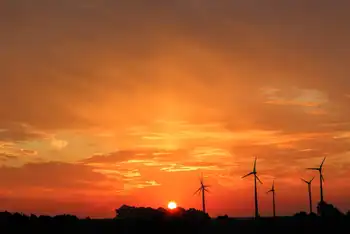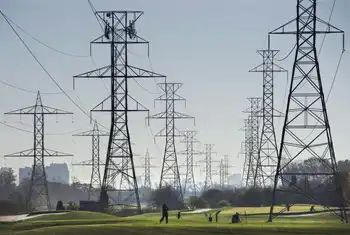Rio pledges ‘power island’ immune from blackouts
By Associated Press
NFPA 70e Training - Arc Flash
Our customized live online or in‑person group training can be delivered to your staff at your location.

- Live Online
- 6 hours Instructor-led
- Group Training Available
Rio has the capacity to produce more energy than it can consume with natural gas-fired plants and nuclear energy facilities nearby. And Brazil's Olympic Committee touted that fact in its bid proposal, saying locally generated energy could supply the city alone instead of being fed into the national grid.
The Olympic venues themselves will also be supported with power from new wind and solar power projects.
But since the blackout, which darkened all of Rio and much of Brazil, the committee has refused to comment on the outage or the power island concept.
Instead, committee officials e-mailed to reporters the section of the bid proposal on energy that does not provide detailed information on what's needed to isolate Rio with its own electricity. Brazil's Energy Ministry also declined to comment.
Experts said the idea of removing Rio from the national grid so it alone would use its energy is feasible, but questioned why bid officials provided no details of their planned infrastructure investments in the proposal.
The Olympic report calls Brazil's electrical system "highly successful and structured."
But red flags were raised by storms that apparently short-circuited transformers on a key transmission line from the Itaipu dam that funnels 20 percent of Brazil's electricity, said Johanna Mendelson Forman, an energy expert with the Washington-based Center for Strategic and International Studies.
"Producing energy and getting it on the grid are two different problems," she said. "It's the same in the United States. There are a lot of places that produce a lot of energy, but the challenge is getting it onto a grid that is antiquated."
The Olympic plan states that "even in the absence of the interconnected system it would be possible to operate Rio's power grid as a power island." That means it wouldn't be dependent on Itaipu-generated electricity that got knocked out during the blackout.
Another energy analyst said Rio is well prepared to divert its energy to the city if Brazil is hit by a blackout of epic proportions during the Olympics. At most, he said, there might be a brief interruption of electricity.
"All gas plants will be running during the games, and if there is a problem like the one that happened in Itaipu, the power will be re-established to consumers within minutes," said Adriano Pires, who heads the Rio-based Brazilian Center for Infrastructure Studies.
Rio's Olympic plan forecasts that the total demand in the city, including Olympic venues, will be 4,900 megawatts — well below its current generating capacity, 5,800 megawatts.
Norman Anderson, a private Latin American energy and infrastructure expert in Washington, D.C., said Rio also gets energy from two nearby nuclear plants. Angra 1 and Angra 2 have a combined installed capacity of 2,000 megawatts, while another planned nuclear plant will produce 1,400 megawatts by 2014.
But this week's blackouts forced those two plants to shut down for 24 hours as a safety precaution after the massive energy failure hit 18 of Brazil's states.
Both Mendelson Forman and Anderson praised Brazil's know-how in the electrical sector and expressed optimism that Brazil has the capability to overcome energy obstacles.
"It has ability and has money, as Brazil was not hurt as bad in this global recession," Mendelson Forman said. "Brazil has an excellent capacity to build infrastructure."
While Brazil's mines and energy minister blamed the blackout on the storms and possible lightning strikes, the National Institute for Space Research, or INPE, said Thursday that the only strikes registered by satellite were at least 6 miles (10 kilometers) from the affected transmission lines.
INPE also said the discharges had low intensity not capable of hurting the lines, and federal prosecutors announced they were launching an investigation to determine how the blackouts happened and whether human error could have contributed.
"It was unwise for the minister to make those statements without consulting the experts at INPE," said Osmar Pinto, a weather expert at the institute.
Presidential chief of staff Dilma Rousseff — Brazil's former mines and energy minister — insisted that the problems were weather-related but said an investigation would determine the cause. She acknowledged it's possible Latin America's largest nation could again experience blackouts.
She pledged, however, that Brazil will never again experience the kind of power rationing that occurred before President Luiz Inacio Lula da Silva took office in 2003.
"We're working with a system of thousands of kilometers (miles) of lines, and no one can promise there won't be interruptions," she said, according to the official Agencia Brasil news agency. "What we can promise is there won't be more rationing in this country."











